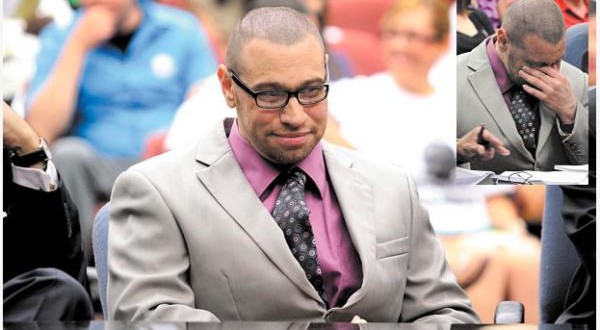After 18 years in prison, an El Paso man convicted of a double homicide will likely be released Tuesday. A mandate allowing convicted killer Daniel Villegas to get a bond hearing was released Monday by the Texas Court of Criminal Appeals. An appeals court set aside Villegas’ conviction and ordered that he receive a new trial nearly 20 years later.
“Oh, it feels great. I can’t thank them enough,” said Villegas, 37, smiling.
Family and supporters have spent nearly 20 years trying to free him.
Right after his release Villegas hugged his mother tightly.
He was 16 when police arrested him for a 1993 drive-by shooting in El Paso.
He has spent half his life behind bars for a double murder he says he did not commit.
“I just want to say thank you to my guardian angel,” said Villegas as he kissed the top of business owner John Mimbela’s head.
The El Paso businessman helped pay for Villegas appeal.
“I told Daniel, Daniel I’m not giving up until you walk out of that jail,” said Mimbela.
Mimbela created a website for Villegas, called QuestforJustice.net.
He and other supporters believe police used threats to coerce the teenaged Villegas into making a false confession that was the main basis for his conviction.
That confession included wrong information about the kind of gun and the color of the car used in the drive-by shooting.
Villegas also claimed he was riding with a man who was behind bars the night of the shooting that killed Robert England, 18, and Armando Lazo, 17, both of El Paso.
Villegas quickly recanted the confession and his family has been trying to free him ever since.
An appellate court vacated the conviction in December citing insufficient counsel. Villegas was released after a bond hearing Tuesday where State District Judge Sam Medrano Jr. set bond at $50,000.
The high profile case is the latest to focus attention on the issue of police coercing young suspects into making false confessions.
Northwestern University Law School’s Center on Wrongful Convictions of Youth has been helping with the appeal and lawyers hope it leads to a change in how confessions are handled in Texas.
“If the interrogation were recorded, there would be no mystery to these questions,” said Joshua Tepfer, co-director of the Center on Wrongful Convictions of Youth.
“Hopefully this case will serve as a wakeup call to Texas policymakers to require recording like many other states have done,” said Tepfe.
The El Paso District Attorney is not commenting on whether his office will retry the case.
In the meantime, Villegas is relishing his freedom.
“Right now I’m just happy to be out,” said Villegas.
After spending 20 years cooped up he rode away from the jailhouse in a red convertible.
Agencies/Canadajournal
 Canada Journal – News of the World Articles and videos to bring you the biggest Canadian news stories from across the country every day
Canada Journal – News of the World Articles and videos to bring you the biggest Canadian news stories from across the country every day



